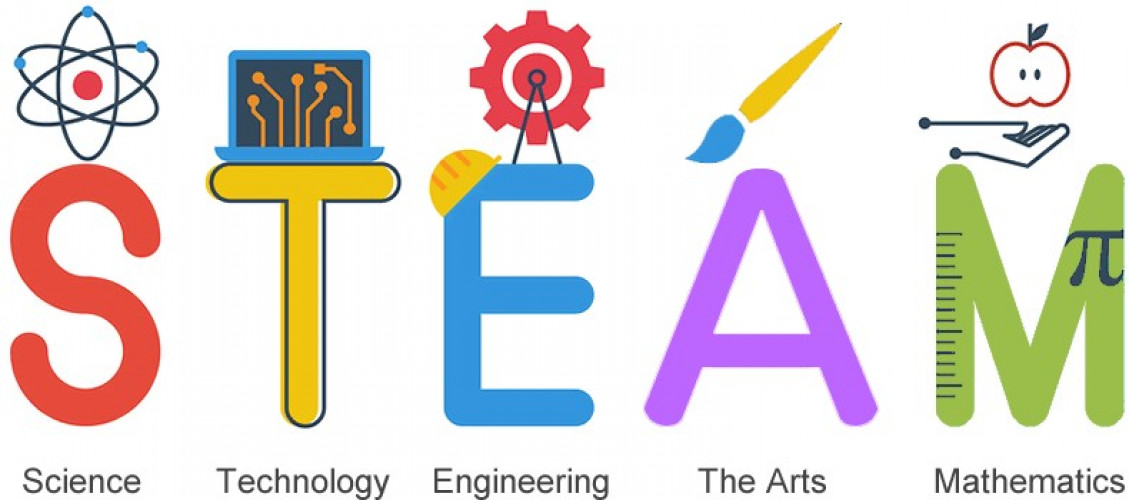The webinar Innovation Beyond Digital: STEAM education with creativity in mind was conducted with participation of STEM experts, teachers and enthusiasts from Eastern Partnership countries and beyond under the ETF Creating New Learning initiative.
The webinar goal was to gain understanding of the model, best practices and solutions in STEAM education - a relatively new concept of enrichment of STEM (Science, Technology, Engineering and Math) with – Arts.

Image: http://www.lppsjournal.com
Whilst STEM education has already become mainstream and popular topic, blending it with Arts – or creativity, project/problem based learning or any other subjects has yet to find its established meaning, that could also vary between the educators and practitioners.
The webinar provided the opportunity for speakers and participants to discuss their perception, practices and methodology related to STEAM curriculum, projects or other educational activities.
Fabio Nascimbeni the ETF Human Capital Development Expert at European Training Foundation has greeted the audience and briefly presented the new Innovative Educators community recently launched by ETF.
Merab Labadze - the organizer and moderator has shared the main findings, resources and observations made by the EU Erasmus+ project SteamOnEdu (https://steamonedu.eu )
The audience was asked to vote for their preferred understanding of the Arts meaning in the context of STEAM. The results are provided below:

Kakha Zhgenti, STEM Program Manager at the National Center for Teacher Professional Development of Georgia talked about How To Develop/Transform STEM To STEAM on the experience of the STEM subjects support program – Club “Chkhirkedela” (Tinkerers’ Club).
Medea Abramishvili, STEM Program Coordinator at the National Center for Teacher Professional Development of Georgiahas further elaborated the understanding of Arts in STEAM by sharing the notion that The Art is, the ‘who & why,’ the reasoning, to the ‘what & how’ of STEM.”

Oksana Pasichnyk, the Computer Science teacher from Lviv, Ukraine has engaged the audience into the interactive discussion about whether Computer Science could be creative. She argued that it is creative in its core. Meaning that computational thinking employs the approaches of Tinkering, Creating, Debugging, Persevering and Collaborating whilst solving the real problems.

Ljudmila Rozhdestvenskaia – an Education Technologist, Trainer and Math teacher from Estonia has presented her story of making STEAM happen in her school and the classes she teachers. The robotics and maker movement has brought the immersive creative experiences to Math and ICT subject teaching. The collections of resources and repositories of how to implement Arts and PBL approaches in STEM projects are available on the web. The key point is to geniunely engage students and make the flow sustain.

In his brief intervention the Robotics teacher and enthusiast from Ukraine - Anatolii Vasyliuk has debated whether Robotics is a part of STEAM, and gave examples proving that indeed it is.
During the subsequent discussion participants took stage and presented their vision, perceptions and approaches related STEAM education innovation.
Additional voting on Slido revealed that the preferable choices for the participants for supporting STEAM projects are National and School levels.

The lively discussion took participants to the debate points, if STEAM should be taught as a subject, and if it brings a real change into the conservative setting of the old-fashioned schooling.
In the final Slido poll the participants gave in 1-2 words their main takeaways from the webinar. Examples include: Holistic approach to STEAM; freedom in Education; Creativity, interest, enthusiasm, diversity, joy, overcoming, challenge, innovation and non-formal that together create a fine mix of the concepts that definitely can make the future education a joy.
The webinar presentations are provided below, and I also encourage a reader to watch the recording in English or Russian.

Please log in or sign up to comment.